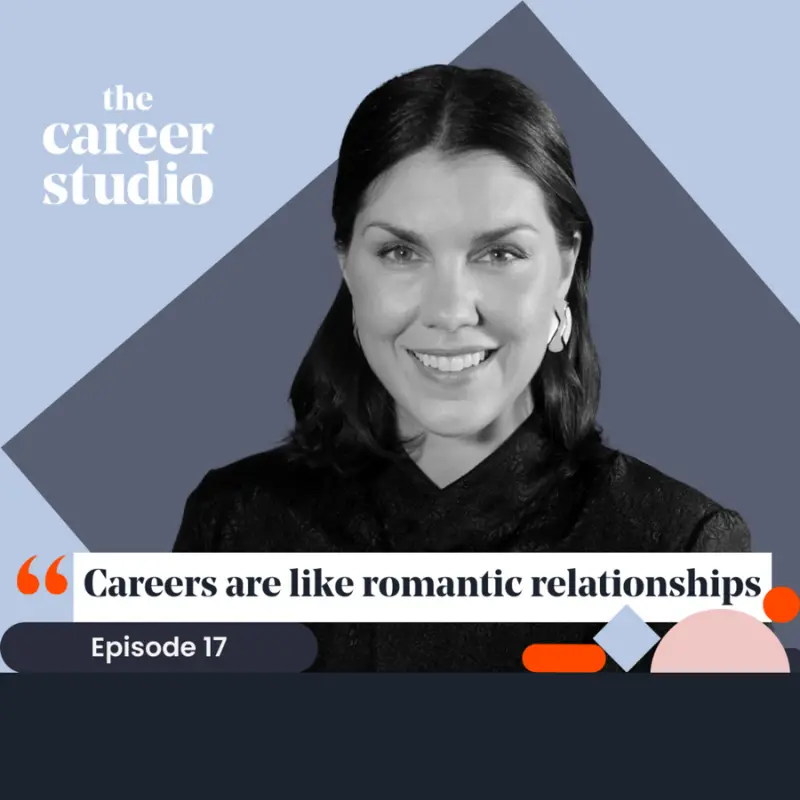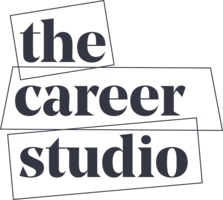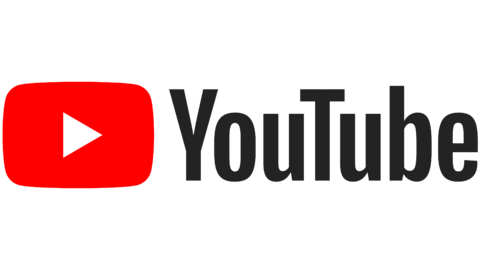Careers are like romantic relationships

The process of building an energizing career you love is similar to the process of building a healthy, thriving, romantic relationship. This is good news. Because you have already had practice understanding yourself and building romantic relationships and so this experience can be applied to many of the core challenges you face professionally when you feel lost, demotivated or burned out.
In this episode I cover.
- The five ways these two things in life are similar
- How to take the wisdom you’ve developed through dating and building relationships and apply it to your career
Related episodes
Are you ready to create an energizing career you love?
You can create a career that is simply an extension of who you are and how you want to live your life. If this sounds like what you’re after then schedule a consultation. We'll get to the bottom of what's going on for you. And exactly where you need to focus to bring your career and life into alignment. It's free!
For more from The Career Studio
Transcript
Welcome to the career studio podcast, where we boil down the noise and focus on the core concepts, essential for building an energizing career you love. One that is simply an extension of who you are and how you wanna live your life. Anyone can do it. It's just a matter of knowing what to focus on.
Hi guys. I am recording this on the first day of spring. It's a beautiful afternoon in New York. I'm feeling very energized and grounded and yeah, just anticipatory for what's to come this year. I think after so many weeks and months of feeling more in hibernation and recovery mode, It's nice to feel different and also kind of have that be reflected in the change of seasons is kind of cool.
So yes, that's the energy from which I'm recording today and I kind of wanted to do a, a little bit of a funny episode about how I think the process of building an energizing career you love is so, so similar to the process of building a healthy, thriving romantic relationship. And I often bring this up with my clients, and when I do, I feel like they're able to access a different level of insight and wisdom because, I don't know, we are so used to talking about dating and romantic relationships and how you think about who's for you and who's wrong for you, and what that feels like. You know, we've all had a lot of experience dating and being in relationships, and so this wisdom can be actually applied to creating the type of career I help people create. And I think that this concept, thinking about your career in the same way that you think about a romantic relationship, this is unique.
I don't think we're used to thinking about our professional lives this way. It's not the narrative. It's not the norm. And that's because what's possible for us professionally is, is so much greater than it's ever been. And so with that, I think the parallels are very, very similar between creating an energizing career you love and creating a romantic healthy, thriving relationship.
And so yeah, I thought I would take you through the five ways I think they're similar. The kind of insights that you will recognize from romantic relationships that you can then take into how you're thinking about your career. It's just easier to apply learnings when we've actually had the experience in another environment.
So that's my hope. Is that the experience that you've had in your romantic life, you can apply to your career, but equally it goes the other way. Maybe you're having a bit more success professionally than romantically and you can apply it vice versa. I won't go into too many details, but that's definitely a place that I've been in. I feel very fulfilled and aligned professionally, and I'm still on that journey romantically, so I kind of am applying it in the opposite direction. But yes, I maintain the two are totally similar.
So okay, let's dive in. How are they the same? I'll just start with the first. The first way that these two areas of activity are the same. You just have to be yourself. This is the mantra of my whole business, ? It takes less energy to be yourself. So, think about in a romantic relationship, have you ever tried to mold yourself to the needs of someone else. Maybe you tried to be a certain version of yourself for that person, or you adapted to what they needed and kind of left a piece of yourself outside of the relationship in order to meet them where they are. Something I've done a lot.
And obviously that's not a long-term solution because you know you're not yourself and that can only last so long. You're not truly connecting to each other if you don't get to be yourself with that other person. And the same is true professionally. When you're in an environment where you have to leave a lot of yourself at the door, you have to mold yourself into another version that doesn't quite feel authentic or doesn't play to your strengths or your interest, that's gonna take a lot more energy. And this is when you burn out. And in a romantic relationship, it's how you lose connection. It's how you get frustrated.
So you know when you are not yourself, the people and the spaces you're in, they aren't gonna be a good fit. They'll reject you in some way. You're gonna feel tired. You're gonna feel bored. You're gonna get a bunch of critical feedback. Maybe you won't be invited to things. You won't connect with the people or the person. Compare that to a romantic relationship that's successful, where you just get to be yourself. They love you exactly for who you are, your strengths and your weaknesses. It's like they love your idiosyncrasies. These little things about you. It feels just relaxing and energizing and natural to be with them.
And the same is true professionally. The space for you professionally will feel energizing and relatively easy. You're gonna be naturally interested in the things that you're thinking about. You can be yourself to do great work. These spaces embrace you, and you'll be able to take all that energy to create awesome things instead of just trying to make it work. Okay? So in both spaces, This is about being yourself, not molding yourself into who you think you should be. And I'm sure anytime you've tried to do that romantically or professionally, eventually you find yourself trying to leave that situation. So that's my first point. Be yourself.
My second point is that the way that the two are similar is that failure is part of the contract. Okay, so what do I mean here? You have to figure out what doesn't work in order to figure out what does. So very few people, I mean, not that everything needs to end in marriage, but let's say it's like a lifelong partnership or a very, very significant long-term partnership. Very few people have married or been in a significant long-term, rest of their life, or very long-term partnership with the first person that they met.
Of course, there's a few stories here and there, but you're probably not marrying that guy you dated in sixth grade, so why? I think it's pretty obvious to us why. Because, you know, when you're 11 or 12 or 13, you know, you have a lot of growing and maturing and life experience to have, you're going to become a different person. I had a very significant, amazing relationship with a guy in my early twenties, but you know, after a few years we realized we were kind of growing into different people in different directions and, you know, that partnership no longer made sense. And so naturally that ended and we went our separate ways.
And this is true of, of your quest to meet the person for you, is that you, you have to date people to figure out what's right. So yeah, there's kind of two points there. It's not only are you growing and changing, but also you might enter into a relationship and realize, oh, actually I don't vibe with people who are like this. So obviously we've all had those relationships too, where you enter it and you realize, oh wait, this doesn't work for whatever reason. And you had to be in that relationship to realize that that was an issue for you. That wasn't gonna be a good fit. You know, you have to learn through that experience.
And this kind of feels very normal when we think about the course of romantic relationships that you know, you have to date a bunch of people to figure out who's for you to figure out what you want and what's important for you. And so what I'd say is like the same is true for work. Expect that there will be lots of failures and you know, failures may be a bit harsh of a word, but expect that you're gonna grow and change and therefore you're going to end relationships with work environments frequently.
What worked for you in your twenties might not work for you in your thirties or forties or fifties, et cetera. Because not only are you growing and changing, but also sometimes you might find yourself working with people who end up not being a good fit or you know the product isn't quite right or the role isn't quite right . And you don't know that until you go into that space. So you know the same is true professionally.
What may have worked for many years starts to no longer work, as you evolve. This happened to me in advertising. I loved my job for four, four and a half years until I realized that I was growing in a different direction. So I had to figure out what came next. And that's normal. Or you might experience the situation where what you thought you wanted might be toxic. So, you know, I found myself working for a very early stage tech startup as the first non-engineering employee. And while, you know, in hindsight, I could have done more prep and exploration to know that that wasn't the environment for me. In that moment, at that time, like I thought that that's what I wanted.
And then I realized that being, uh, the first non-engineering employee at an early stage tech startup was really not for me. That's not an environment that I got a lot of value from. I didn't thrive in it. It wasn't well suited for my strengths and my interests, so I learned that first-hand. And this is normal, I guess this is what I'm saying, normalize that it's okay to go into a job, realize it's no longer what you want, and go somewhere else. Just as it's very normal to enter into a relationship at some point, realize it's not what you want, and then move on to something else that's a little bit of a better fit. So these two things are totally similar in the exploration of finding, what is that sweet spot for me? What feels like fulfillment romantically and professionally?
Okay. I'm gonna talk about my third similarity, building off of what I just said. So one, you have to be yourself. Two, you have to expect that you're gonna fail. There's gonna be iterations and steps along the path. You can't force it. This is my third theme. You can't force it, so no matter how much you want it to work, if it doesn't work, it's not gonna work. Eventually, you're gonna get bored. You're gonna get burned out, you're gonna get annoyed. No matter how much we like the idea of the thing, the idea of, of a relationship with that person. Or the idea of that job title or that company or that industry on our resume, no matter how much we like the idea of it, if it doesn't work, it's not gonna work.
I mean, you can force it for a period of time, but eventually, as I said, you're gonna burn out cuz you're forcing it and that takes energy or you're just really gonna get bored of it, or frustrated, et cetera. While obviously work is required, and I'm actually gonna talk about that next, at the end of the day, no matter how badly you want it, things that aren't for you will ultimately end. And so yeah, the fourth point, the fourth way these two areas are similar is that you should expect hard work. There's no getting around the fact that you will have to do work and that it won't always feel fun to build a successful relationship or career . So let's think about the relationship first.
After that first high of dopamine and serotonin, you'll eventually, that will decrease or that will come crashing down and you're gonna see the other person for who they are, a flawed human being, just like you. And it's about deciding that you're willing to put in the work with this person to navigate disagreements, to come to compromises, to go through hard times together, you know, that will be work and that's what's gonna be required to build a long-term partnership, romantic partnership.
Equally no matter how aligned and fulfilled you feel professionally, there's always gonna be parts of your job that you like less than others, that won't feel like fun to work on. So for me, you know, I, I love what I do, but there's still a lot of times when, you know, I don't feel like creating or I don't feel like updating some of my content. But what's important is that that hard work in both situations, the hard work is going to feel worth it to you. Because either you know the person you love, and you know what's possible together and you have so many great times and such a great connection that the work is worth it. The hard times are worth it, and the same is true professionally.
When you feel really excited and called to something, that calling can get you through the parts that you don't like. When I think about the pain point that I'm trying to solve, making it easier for people to really feel energized and alive at work. Having been through not feeling like that myself, and now feeling that way, ? That change and the shift that I see in my clients, it's so profound and it's so motivating that that's what gets me through doing the work I don't wanna do on my business. , and the same is true and romantically, as I just said. So, you know, even though you can't force it, there will be hard work.
Maybe that's a little bit of a nuance there that I didn't think about when I was writing this outline, but hopefully that makes sense. Okay, so finally, the fifth way these two areas of your life are the same, is this acknowledgement, similar to the hard work though, that like nothing is perfect, so you're gonna have your list of all the things you want in a romantic relationship. But you know, oftentimes it's the person you least expect, that you fall in love with.
Or you know that person will never meet a hundred percent of what you want, ? Because perfection doesn't exist and..... it's funny, one of my, one of my friends, her uncle, who was like a serial bachelor his whole life, he once told her, you know, if you meet someone that's like 80% of what you want, you should go for it. Don't wait for a hundred percent because it doesn't exist and it's the same with thinking about a fulfilling career. With my clients, we're working on over 70% of what they want. No job is gonna be perfect. You're going to have to compromise on a few things, but as I said before, it's going to feel worth it for the thing.
You just wanna remember to embrace those compromises intentionally. You know that you're making that in service of your end goal. So for me, one of the big things I compromised in choosing this as a profession is that I am basically working alone. I'm coaching my clients during the day, but I'm not like going into a buzzy office and like collaborating with people, um, on a big team. And I kind of miss that. But that was a compromise that I made because I had enough other things that were really aligned for me. Okay. So I hope that these parallels have resonated for you and allowed you to see your own journey to creating an energizing career you love as something that you have experience in already. Because of your experience dating in life.
Okay,no matter where you are in that journey, you have wisdom from this area of life that you can apply to your career. Okay? So to recap the five areas, one; be yourself. It takes less energy to be yourself. The professional environments that are a fit for you will allow you to show up and be yourself, and being yourself will allow you to thrive.
Two; failure is part of the contract. You can expect that you will have to date a lot of professional environments in order to find the one for you. And then even when you find that one, you might grow out of it after a time , and, and that's okay. Three; you can't force it, no matter how badly you want it, no matter how good it looks on paper, if you can't be yourself. If it's not actually a fit, it's never gonna click.
Four; expect hard work. Once you've found a thing that clicks, you will still have to work hard. There will be things you don't wanna do that you have to do. And that's okay. And lastly, you know, nothing is perfect. Just like no person is perfect and there's no such thing as the perfect romantic relationship. Equally professionally, you're not gonna get a hundred percent of everything that you want. There will be exceptions, there will be compromises, but you can make those compromises intentionally, knowing that you're making them in service of the thing that's worth it. Service of all of the components that you're getting that do feel worth it. And what works in one area of your life will work in another because it's the same kind of feeling that you are creating.
So, you know, I think we're used to thinking about these parts of our life as these two distinct spheres, you know, our professional life, our personal life. But actually they're inextricably linked and it's basically all the same. And that's really what this is about. Kind of creating a life that just feels more balanced, more cohesive, where you just get to be you all the time in every capacity.
So, you know, it's just about tuning into yourself and who you are and what you want, and then applying that to every area of your life. So these things feed off of each other. So instead of seeing them as two separate spheres, really seeing them as exactly the same challenge that requires the same, very similar approach.
All , that's my spiel for today. Have a great week.
Hey, if you're ready to create an energizing career you love, one that is simply an extension of who you are and how you want to live your life. Then I wanna invite you to schedule a consultation. We'll get to the bottom of what's going on for you. And exactly where you need to focus to bring your career and life into alignment. It's free. Just head on over to thecareer.studio/schedule to find a time that works for you, or if you're enjoying and getting value from these episodes, I'd love you to leave a short review on whatever podcast app you use.
This helps other people like you find and get value from the podcast too.



